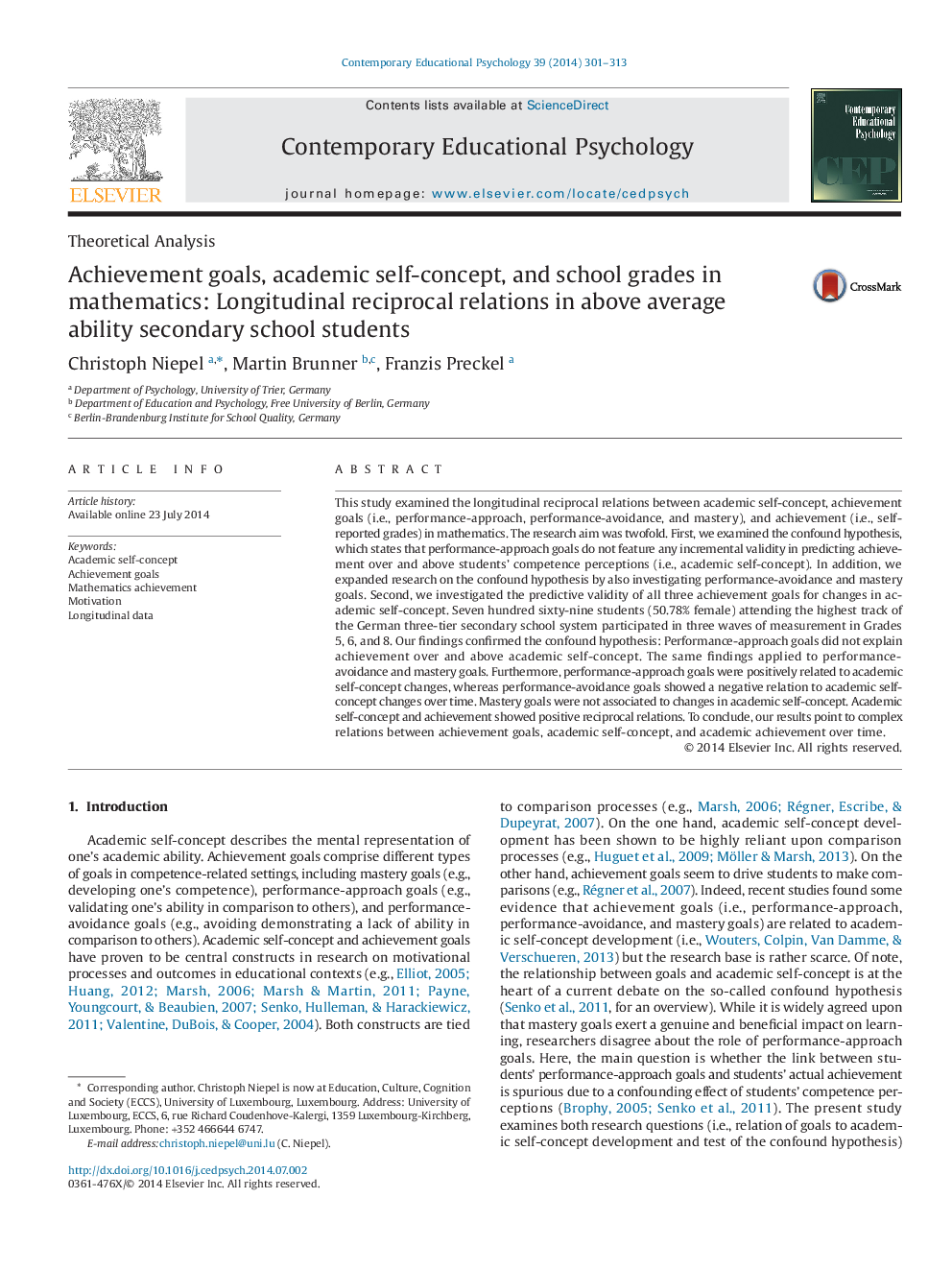| Article ID | Journal | Published Year | Pages | File Type |
|---|---|---|---|---|
| 352646 | Contemporary Educational Psychology | 2014 | 13 Pages |
•We study relations between goals, self-concept, and achievement from Grades 5 to 8.•Predictive links from goals to achievement are due to a confound in self-concept.•Performance-based goals predict changes in academic self-concept.
This study examined the longitudinal reciprocal relations between academic self-concept, achievement goals (i.e., performance-approach, performance-avoidance, and mastery), and achievement (i.e., self-reported grades) in mathematics. The research aim was twofold. First, we examined the confound hypothesis, which states that performance-approach goals do not feature any incremental validity in predicting achievement over and above students' competence perceptions (i.e., academic self-concept). In addition, we expanded research on the confound hypothesis by also investigating performance-avoidance and mastery goals. Second, we investigated the predictive validity of all three achievement goals for changes in academic self-concept. Seven hundred sixty-nine students (50.78% female) attending the highest track of the German three-tier secondary school system participated in three waves of measurement in Grades 5, 6, and 8. Our findings confirmed the confound hypothesis: Performance-approach goals did not explain achievement over and above academic self-concept. The same findings applied to performance-avoidance and mastery goals. Furthermore, performance-approach goals were positively related to academic self-concept changes, whereas performance-avoidance goals showed a negative relation to academic self-concept changes over time. Mastery goals were not associated to changes in academic self-concept. Academic self-concept and achievement showed positive reciprocal relations. To conclude, our results point to complex relations between achievement goals, academic self-concept, and academic achievement over time.
